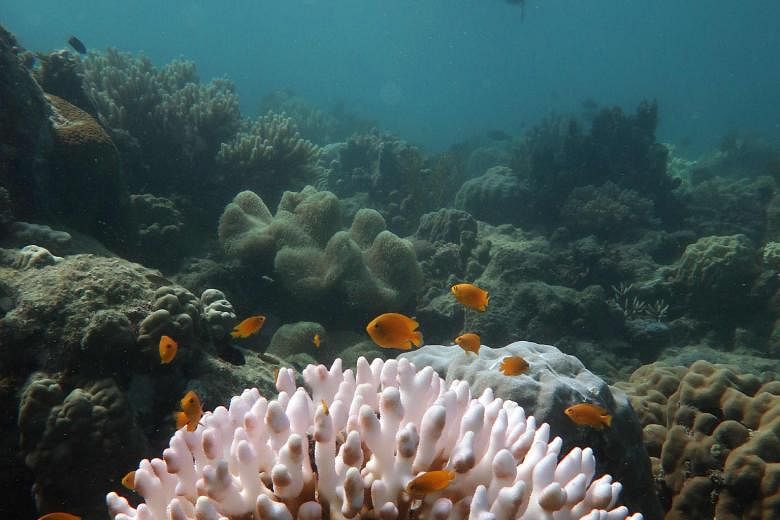Australia's winter, which began on Monday, typically marks the start of a great northern exodus as holidaymakers from the cooler southern cities of Sydney and Melbourne make their way to the warm state of Queensland.
This year, however, there will be no trips to the Great Barrier Reef or beach holidays in Queensland's Gold Coast for most Australians.
Controversially, the state government has decided to keep its border shut due to the Covid-19 pandemic.
The move has prompted anger from other states and has been heavily criticised by towns and businesses that are highly dependent on tourism.
However, State Premier Annastacia Palaszczuk insisted that it was unsafe to allow holidaymakers to enter from the two most populous states, New South Wales (NSW) and Victoria, which have had the highest Covid-19 infection rates.
Instead, she opened a "Queensland bubble", allowing the state's 5.1 million residents to travel within its borders on holidays, a change which began this week.
"We do have some concerns about the active cases in NSW and Victoria, but that may ease over the coming month," she told reporters on Sunday.
"But let me make it very clear, the border will remain closed for the month of June, and at the end of month we will be actively considering all circumstances."
The Covid-19 outbreak has led to highly unusual moves by Australian states to close their borders, which are typically open and unmanned.
Queensland, South Australia, Western Australia and Tasmania have shut their borders to most travellers, including holidaymakers.
NSW and Victoria, which have experienced the largest number of infections, kept their borders open.
But confirmed cases in these states remain low, and many involve Australians returning from overseas who are then kept in quarantine for 14 days.
In the week to Wednesday, Queensland had just one confirmed Covid-19 case.
NSW, which has 8.1 million residents, had 15 cases and Victoria, which has 6.6 million residents, had 55.
NSW Premier Gladys Berejiklian has described the Queensland travel ban as "ridiculous".
"This is a time when we need to increase our economic activity and stop people losing their jobs," she told WSFM Radio.
"Yes, we did have the most cases but most of our cases are people coming back from overseas."
The Queensland travel ban has been particularly controversial because the state attracts high numbers of domestic tourists.
Last year, domestic visitors to NSW, the most populous state in Australia, spent A$23.7 billion (S$22.9 billion).
But Queensland was the second largest domestic market. Visitors there spent A$19.4 billion, compared with A$17 billion in Victoria, A$8.6 billion in Western Australia, and A$5.2 billion in South Australia.
Queensland, however, is particularly dependent on interstate visitors, most of whom come from NSW and Victoria.
And many visit during the cooler winter months, including the school holiday break in July.
The loss of interstate tourists is reportedly set to cost Queensland A$769 million for each month that the borders remain shut.
Tourism hot spots such as Cairns and Surfers Paradise have been described as "ghost towns".
Opinion surveys have indicated that residents strongly support the border closures.
But tourism businesses have urged the state government to reopen the borders, at least before the July school holidays.
"When the mercury drops in the southern capitals, the phones in Cairns and the Great Barrier Reef usually ring off the hook," Mr Mark Olsen, chief executive of Tourism Tropical North Queensland, told The Australian newspaper.
"This year, the phone calls are mostly cancellations, based on the uncertainty of travel restrictions continuing into the school holidays."
The Queensland and Western Australia border closures have prompted at least two High Court challenges by tourism operators and business figures who say the move is unconstitutional.
Constitutional experts say that states have the right to close borders for health reasons, such as a pandemic, but would need to show that the continued closures are necessary.
As new infections dwindle in Australia, the states will find it harder to defend their closures.
Ms Palaszczuk has so far indicated Queensland's borders could be closed until September.
But she has also signalled that the government is due to reassess the decision on July 1, and could consider opening the borders earlier.











